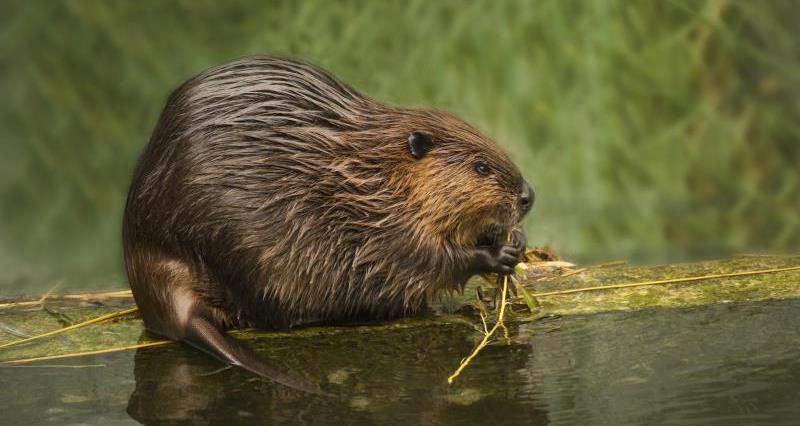The government has announced today that the wild release of beavers will be permitted under licence as part of a carefully planned reintroduction programme. This builds on existing legal and illegal beaver populations which have established in England.
A new Defra policy statement sets out the government’s approach to the wild release and management of beavers in England. It includes details of the new wild release licensing criteria, how existing populations will be managed, including the support available to landowners and farmers, and a commitment to consult with stakeholders on the long-term management plan for beavers in England.
Defra has said the return of beavers will be “carefully managed to avoid impacts on farming, food production and infrastructure”, with new wild release projects requiring a project plan covering a 10-year period before Natural England will consider granting a licence.
NFU Deputy President David Exwood said: “The NFU recognises that, in the right location, beavers can provide certain benefits and some farmers and landowners may be interested in beaver reintroduction opportunities.
“However, we are concerned about the negative impacts beavers can have on productive farmland, as well as the management requirements, costs and risks involved.
“Beavers can flood and waterlog fields, feed on agricultural crops like maize, as well as damage and fell trees such as cricket bat willow.”
Beaver management and support
“The government must put in place a longer-term vision and management plan for beavers – before any further wild releases are considered.”
NFU Deputy President David Exwood
The government’s 5-step management approach sets out the current steps to manage existing beaver populations and impacts.
There is currently no longer-term vision or management plan for beavers in place.
The government has committed to consult with stakeholders on the long-term management plan for beavers in England, however this will be once further releases go ahead.
It is important to note that the government has committed to this, but at this stage it fails to fully reassure farmers that they will have sufficient management options in the future and that their livelihoods will be protected.
NFU Deputy President David Exwood added: “With existing legal and illegal populations of beavers expanding across England, the government must put in place a longer-term vision and management plan for beavers – before any further wild releases are considered.
“This must include the ability for those involved in beaver management to use all available tools in the toolbox, including lethal control, if beavers become disruptive. There must also be strict criteria in place for wild release projects, including an agricultural impact assessment and consultation with the farming community.
“It’s important we work with government in developing its approach to beavers to minimise the negative impacts, while ensuring beavers fit in with wider ambitions for multi-functional land use and food production.”
Local support to help farmers manage beavers is available from beaver management groups and some funding is available within ELMs (Environmental Land Management schemes).
The NFU does recognise that the government has taken on board some of the NFU’s feedback and asks within its current planned approach and is willing to work with farmers on the next steps.
Further information on beaver management and funding is available on our essential information page.
Strict wild release criteria needed
Beavers are a protected species. Licences will be needed to release any beavers into the wild with proposals considered against the government’s newly published wild release criteria. The NFU has been able to influence some of the criteria.
Defra has said that it only intends to allow beaver releases that are:
- well-managed
- at a measured pace
- in locations with the best potential for environmental, social, and economic benefits
- developed with proper engagement from local landowners and managers
- able to minimise the risk of negative effects.
Tony Juniper, chair of Natural England, said: “Under licence from Natural England, the release of wild beavers will be managed to secure the long-term environmental benefits while seeking to minimise and avoid unwanted impacts.”
Existing populations and future releases
The policy statement confirms that “Defra will allow all existing beaver populations to remain and expand naturally and will ensure that appropriate management measures are put in place”.
This will therefore encompass some populations that were introduced illegally. Defra has further confirmed that it “will not tolerate the continued unlawful release of beavers”.
The NFU continues to call on the government to take stronger action on illegal releases.
It is expected that, following this announcement, a release of wild beavers will happen soon at Purbeck Heaths National Nature Reserve with a licence issued to the National Trust.



